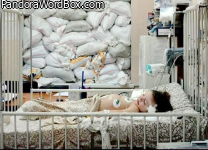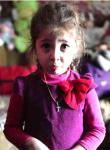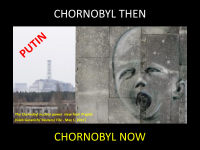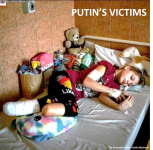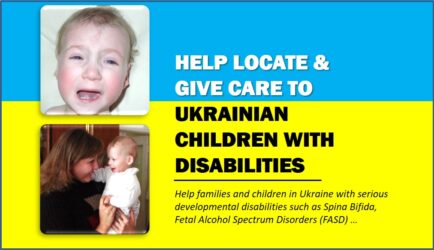|
× UKRAINIAN CHILDREN WITH DISABILITIES HAVE SPECIAL NEEDS |
SOPHOCLES TRAGEDY ETHICS HAMARTEIN HAMARTOMA MALFORMATION BIRTH DEFECT EVIL EYE FLAW ODE ODEON ODYSSEY MALFORMATION MAL DE OJO
Tragedy
Hamartein Hamartoma
Congenital Malformations Birth defects
Hamartiology "Evil Eye" Bruning Witches
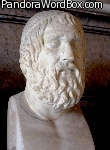
Tragedian Sofocles
"Man is a Victim of his Destiny"
(the final line in Oedipus Rex)
With Aeschylus (c.525-c.456 BC) and Euripides (480-406 BC), Sophocles( 495-406 BC), belongs to a trio of great ancient tragedians. Fudamentally, tragedy conveys the idea of a "flaw" or "hamartein" of body and mind leading to a destiny with sorrows. "Trag-odia" (song) found in Ody-ssey or theaters named "Ode-on" conveys ideas of tragic (tragedia) songs, odes, poems and plays. Aristotle stressed that the core element in a tragedy is an undeserved misfortune capable of touching our consciences (ethics) and evoking empahty.
Hamartein, hamartoma and hamartia are focused on flawed development of tissues or character resulting in tragic malformed constitutions (body and mind).
Hamartiology was coined by Biblical theologians interested in linking human flaws to sin. Perhaps hamartiology is the reason why congenital malformations became to be seen as products of sin and evil instead as elswhere, where malformed chidren were cherished as "prodigies" or messengers of the divine. During the dark ages in Europe (and America) mothers of children with birth defects were stigmatized and could be suspected of having consorted with the devil. As zealotry spread, a woman with polythelia (an extra nipple) could be declared being a witch and burned. Socrates, Rasputin and many others who lived in between were accused of having the powers of the "Evil Eye" (Mal de Ojo). Many parents today rush to purchase amulets to shield a newly born from the powers of evil. Humanity harbors superstitions, the petrifying gaze of Medusa is a prime example, because perhaps it can not accept the tragic view of Sophocles that "man is a victim of his destiny".

Hansa, khansa, hand of Miriam or Fatima, Fatimah, nazar, nararih
"Evil Eye" apotropaic (evil averting or "turn away") talisman
Nuances in : Aphorism | Axiom | Byword | Cliche | Dictum | Citation | Epigram | Epitome | Homily | Maxim | Metaphor | Motto | Precept | Proverb | Quotation | Saying | Slogan



